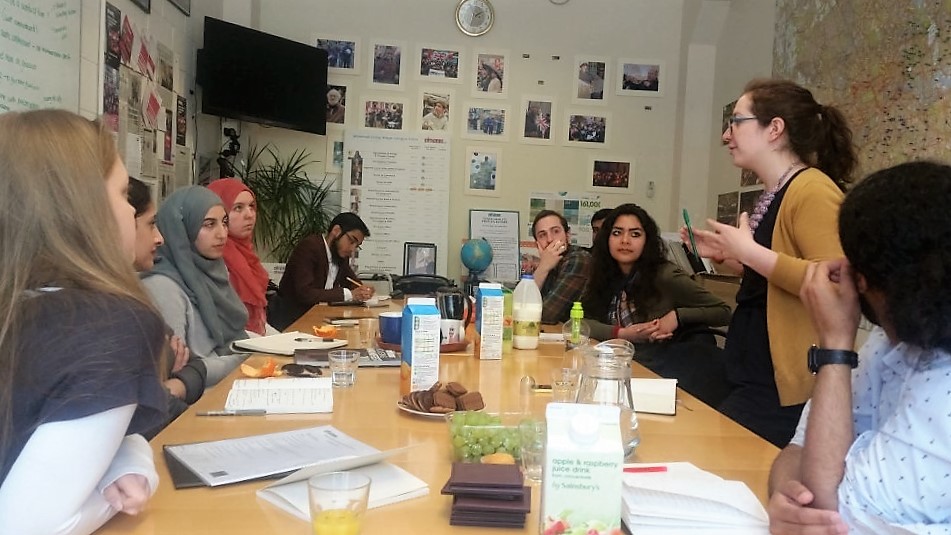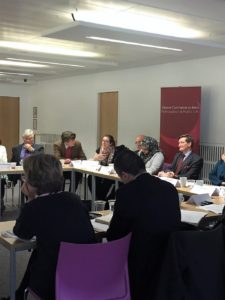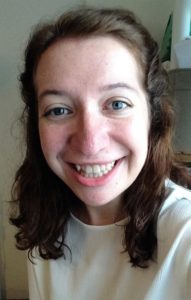Guest post by Cadet Lottie Milner

Last July, as a young adult member of The Salvation Army Corps in Stepney, I was invited to take part in a BBC Radio 4 recorded discussion, marking the launch into the Citizens UK Commission into Islam, Participation and Public Life. Gathered together in a room in the East London Mosque were a group of young people from different backgrounds, responding to comments made by David Cameron in his speech about extremism, and discussing the young British Muslim identity. I heard a cry of pain graciously articulated amongst those present that I had not fully recognised before. My eyes were opened for the first time to how multi-faceted the issues facing British Muslims are. We could never have imagined the situation that we see now, a year later.
The Commission on Islam, Participation and Public Life (hereafter referred to as ‘the Commission’) was launched in September 2015 because Citizens UK had noticed Muslim leaders and their communities retreat from public life. The Commission sought to understand the reasons behind this and investigate to what extent Britain has incorporated its Muslim citizens, and allowed them to fully participate in public life.
Gathering together commissioners from a wide cross-section of British society, including those from traditional positions of power as well as those at the grassroots (like me!), ‘hearings’ were organised up and down the UK. Online evidence could also be submitted in order to hear people’s experiences – both good or bad. So far, there have been hearings in a number of places including Birmingham, Leeds, Nottingham and Cardiff. This autumn will see hearings in Glasgow, Newcastle and Leicester. All contributions help to form the foundation of the report and subsequent recommendations to the sectors and Muslim communities.
What I love about the Commission is the importance that has been placed on listening first. We can’t take action, or do anything meaningful without knowing what has been going on first. That is why the commission is so important. As Marching Towards Justice explains, ‘prior to any effective action, whether it’s a building project, a battle, or the creation of the world, it is necessary to know the real state of things’ (p19). Focusing on the ‘world as it is’ rather than the ‘world as it should be’, the Commission is giving affected people a platform to share their grievances, to share their good news stories, and to share their solutions. They are inviting people to invest something of themselves in the Commission, and as they move through this initial listening period and the compilation of the report, these investors will become the very ambassadors of the changes they hope to see – and what a beautiful thing that is!
 So why does it matter to me? In that initial recording, something that a young man said convicted me. He said “instead of us and them, it should be us together.” It’s a simple turn of phrase, and yet it speaks so loudly about the lived experiences of people in our country. I think about my community – a community that is 49% Muslim. We work hard through the corps to build relationships through shared meals, laughter, tears, football matches and litter picks. It breaks my heart that this is how people I share my life with feel. “Us together” reminds us that we all share the responsibility in what has brought us to this point, and we have a part to play in looking at how we are going to move forward.
So why does it matter to me? In that initial recording, something that a young man said convicted me. He said “instead of us and them, it should be us together.” It’s a simple turn of phrase, and yet it speaks so loudly about the lived experiences of people in our country. I think about my community – a community that is 49% Muslim. We work hard through the corps to build relationships through shared meals, laughter, tears, football matches and litter picks. It breaks my heart that this is how people I share my life with feel. “Us together” reminds us that we all share the responsibility in what has brought us to this point, and we have a part to play in looking at how we are going to move forward.
Through the Commission hearings, I have been able to listen to so many stories, both good and bad. Some have truly broken my heart with the pain of people’s feelings of alienation and discrimination, while others have given me new hope and moments that felt like heaven kissing earth. I’m reminded of the moment in Birmingham, when a member of the public stood up and said “In my village there are no Muslims. We are probably a little islamophobic, islamoignorant, islamocurious. Can we partner?”
Listening is so very important. It’s more important than ever before that we as Christians truly listen to others, value them, and seek to understand each other’s beliefs better. When we do this things will change; it will change us, and we can go onto change the world. Us together.
 Lottie Milner is the co-chair of the Youth Leadership Group and representative commissioner on the Citizens UK Commission on Islam, Participation and Public Life. She is starting Salvation Army officer training at William Booth College in the ‘Messengers of the Gospel’ session in September.
Lottie Milner is the co-chair of the Youth Leadership Group and representative commissioner on the Citizens UK Commission on Islam, Participation and Public Life. She is starting Salvation Army officer training at William Booth College in the ‘Messengers of the Gospel’ session in September.

Well said Charlotte!
I like your ideas, and I am very proud of your beliefs and the fact that you talk out loud about them